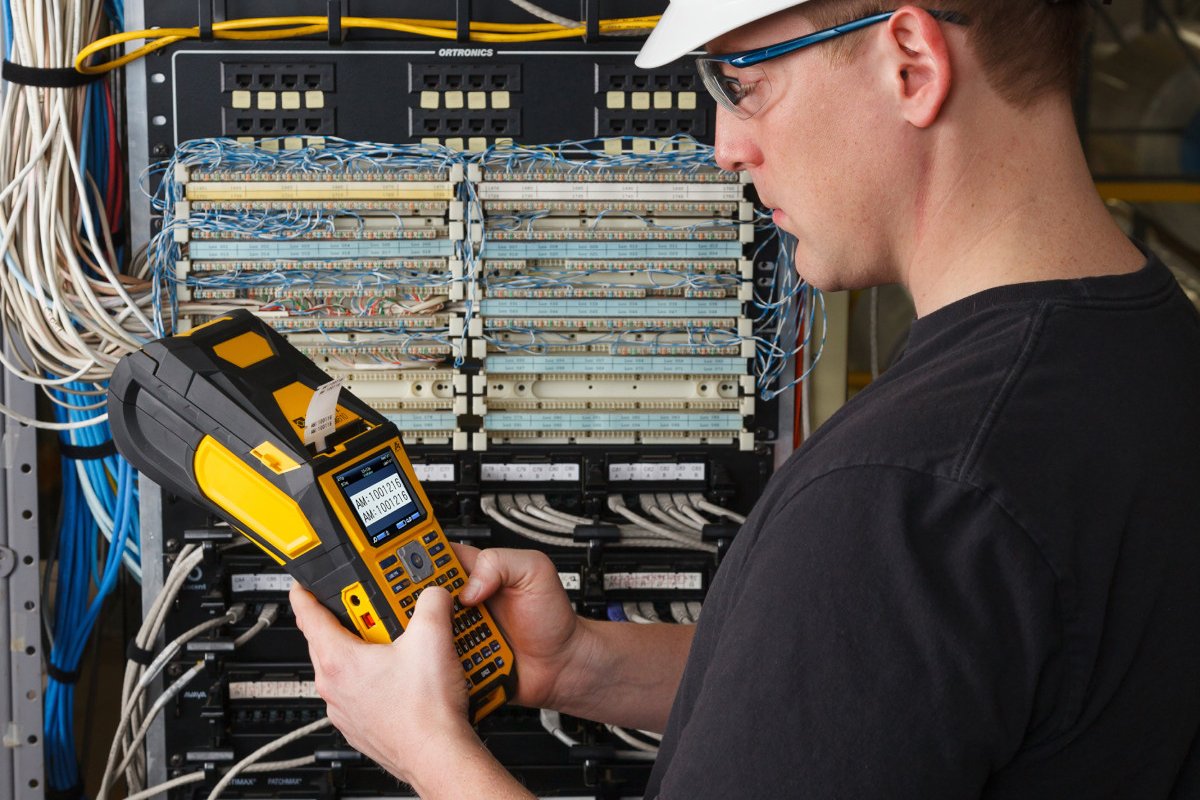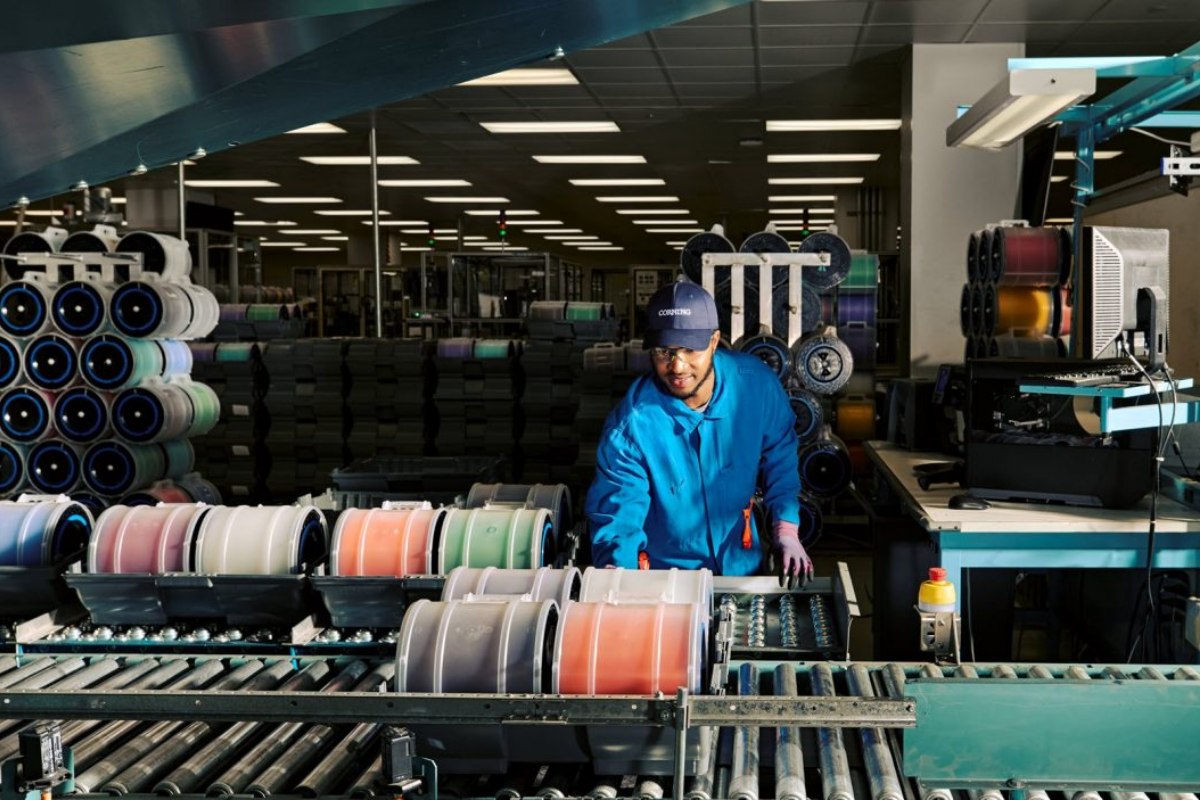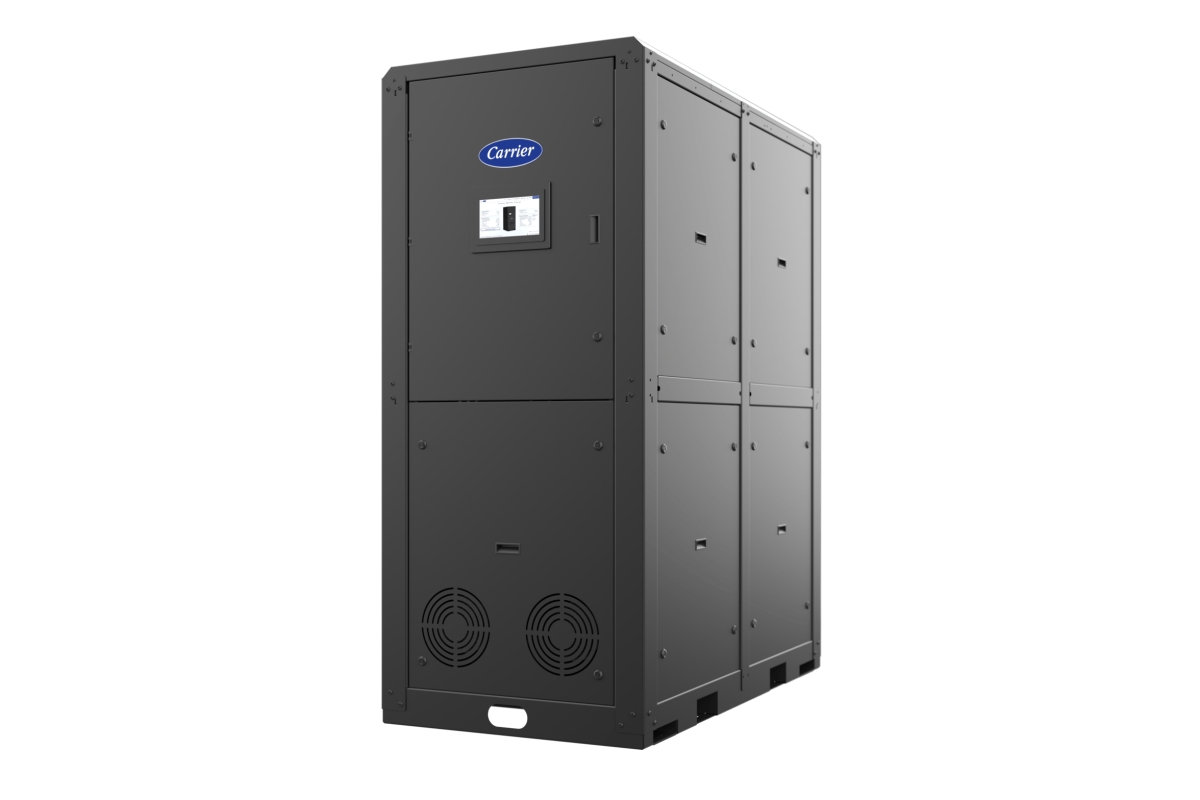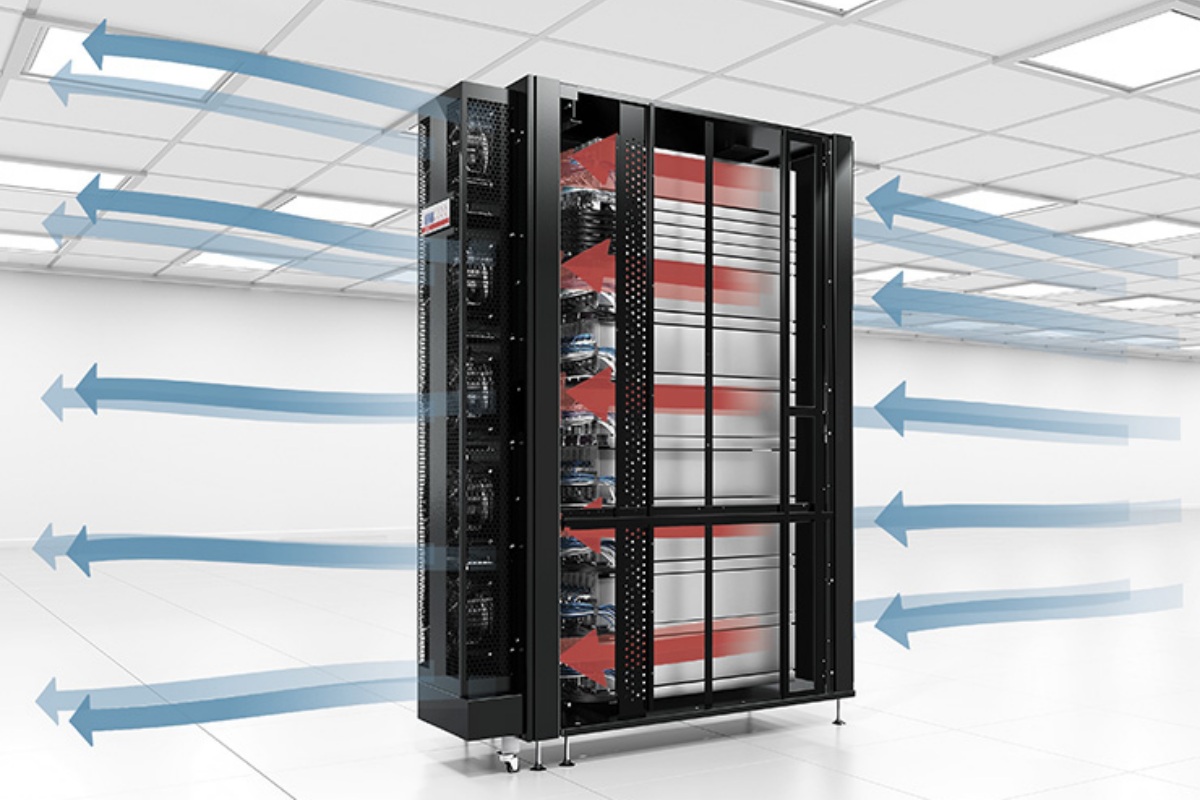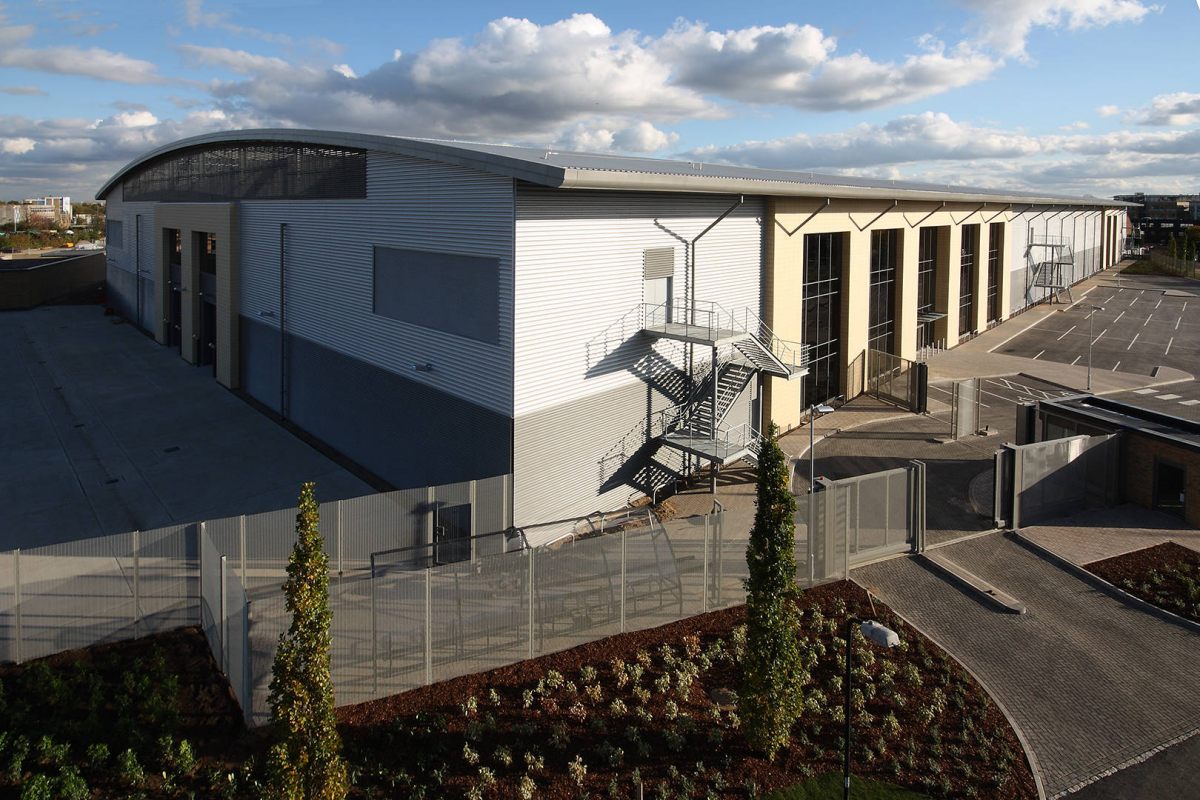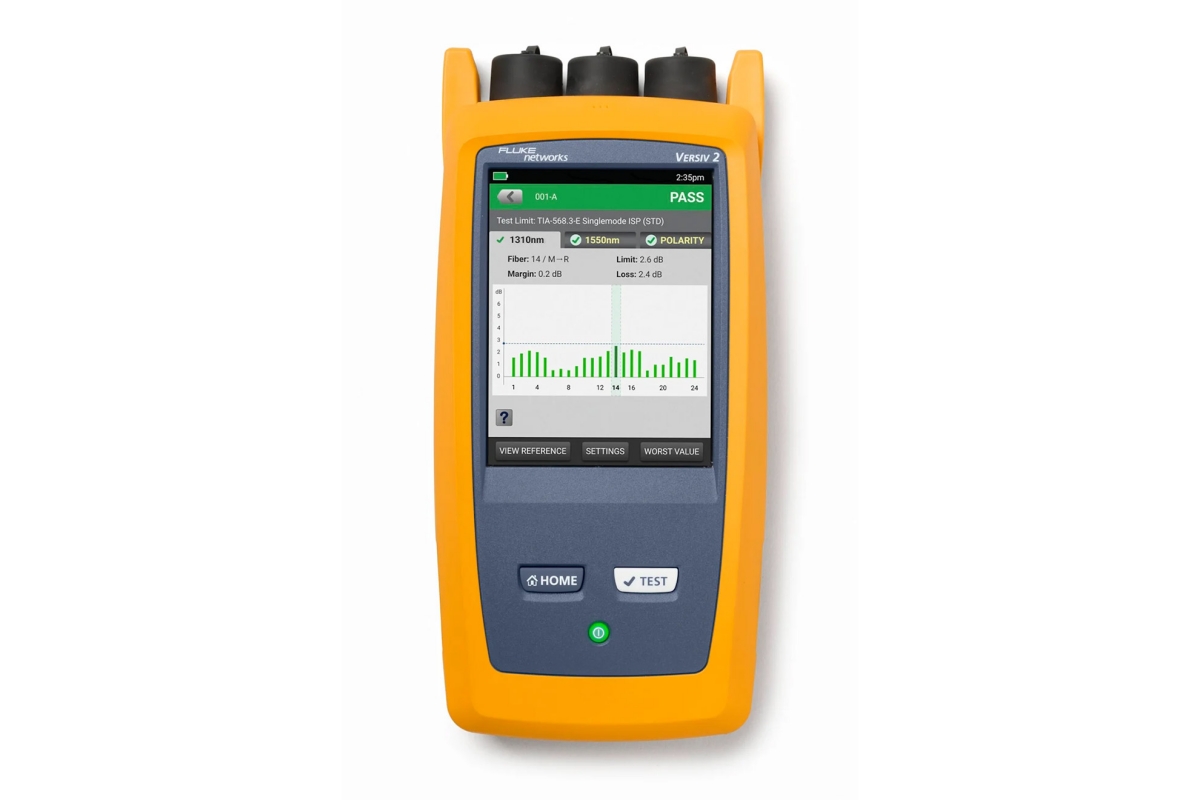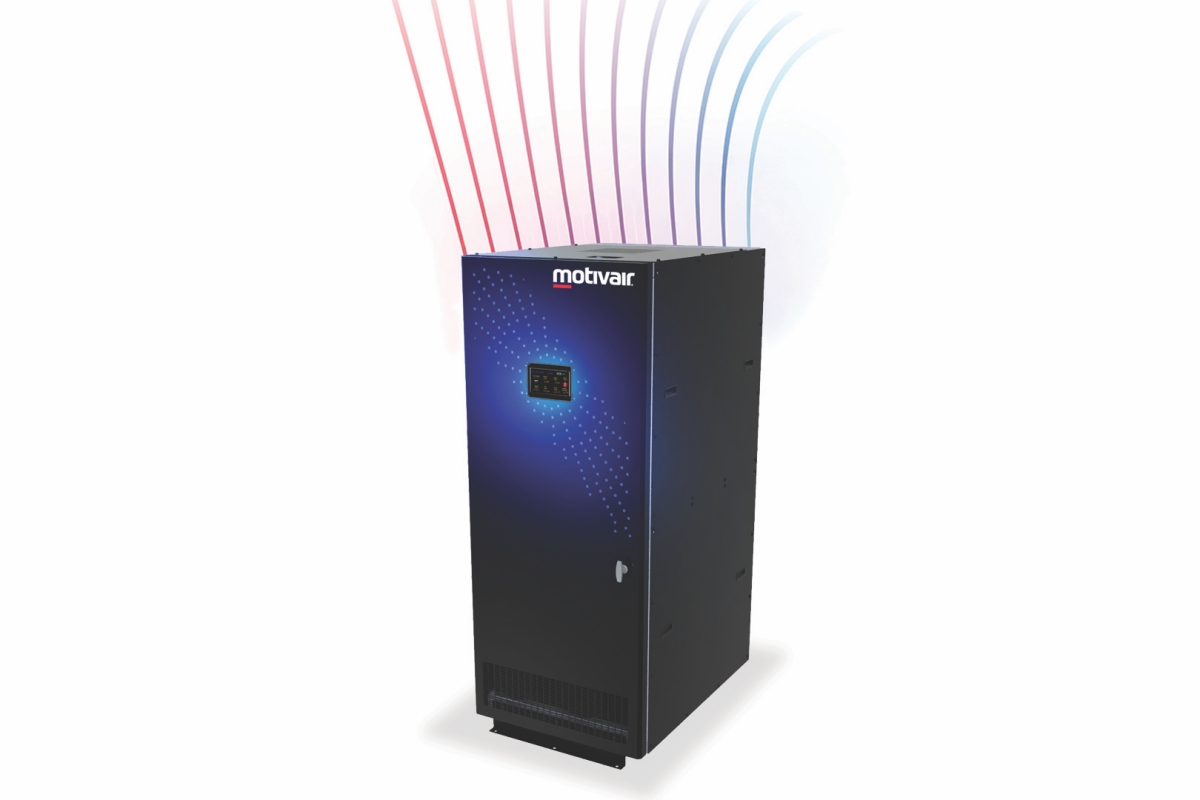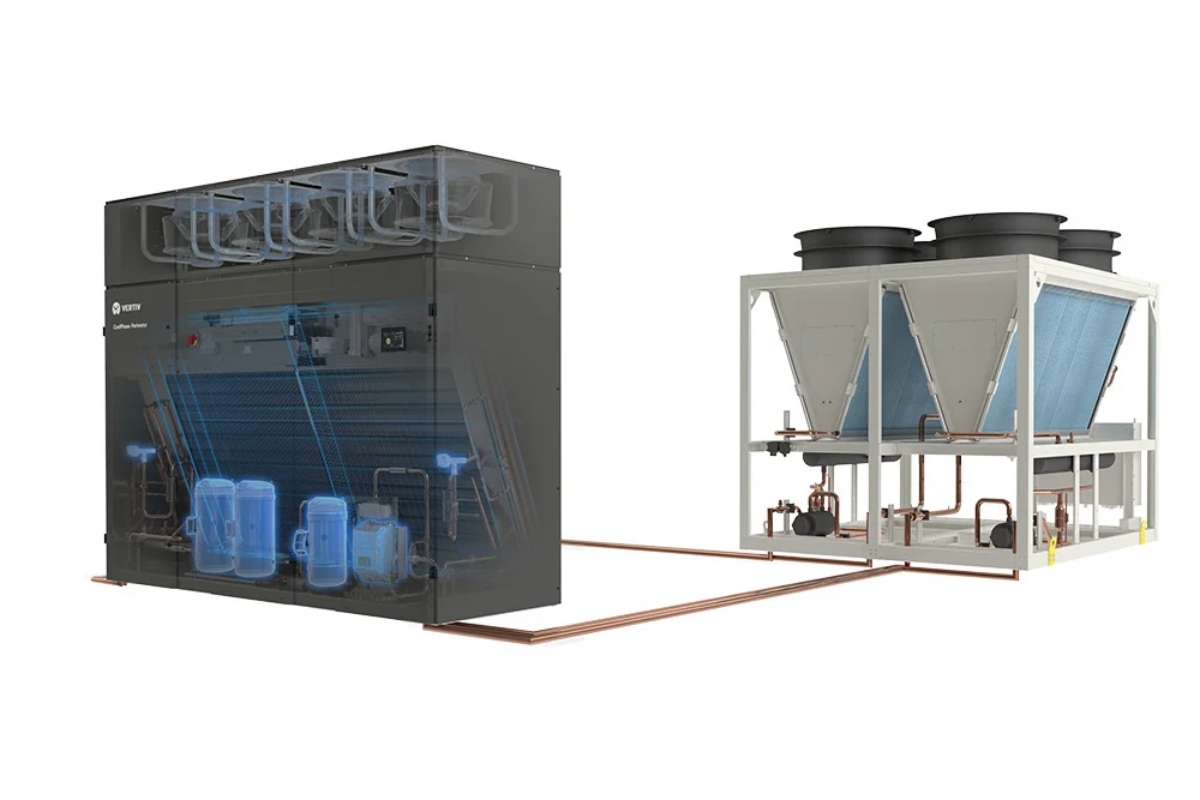News
Cabling Solutions for Optimised Data Centre Performance
Data Centre Infrastructure News & Trends
Products
Sponsored
Case study: The data centre's shield against errors
In an industry where a single unplugged cable can stall a production line, "good-enough" labelling isn't an option.
A leading automotive manufacturer faced a challenge: their cabling was becoming a maze of human error, threatening the uptime of their mission-critical services. The solution wasn't just better labels; it was a standardised identification ecosystem.
By deploying industrial-grade materials and the high-volume BradyPrinter i7100, as well as the handheld M610, the manufacturer ensured that every rack and server remained clearly identifiable under any conditions.
This move towards precision eliminated the guesswork that leads to accidental disconnections. The result? A solid infrastructure where technicians move with confidence.
The operational resilience starts at the surface - with a reliable label that stays readable.
Click here to read more and to learn more about reliable identification solutions for data centres.
Meet Brady experts at Data Centre World (DCW) in London, UK, 4–5 March 2026, Booth F175.
For more from Brady, click here.
Joe Peck - 29 January 2026
Data Centre Infrastructure News & Trends
Enterprise Network Infrastructure: Design, Performance & Security
News
Corning, Meta agree $6bn data centre supply deal
Corning, a US manufacturer of optical fibre for telecommunications and data centres, and US technology company Meta Platforms have today announced a multi-year agreement of up to $6 billion (£4.3 billion) to support the build-out of advanced data centres in the United States.
Under the agreement, Corning will supply Meta with optical fibre, cable, and connectivity products to support its data centre and AI infrastructure.
As part of the arrangement, Corning will expand manufacturing capacity across its operations in North Carolina, including a major expansion at its optical cable manufacturing facility in Hickory, where Meta will act as an anchor customer.
Corning says the agreement will support increased domestic production of optical connectivity technology used in large-scale data centre deployments.
Manufacturing expansion and employment impact
Wendell P. Weeks, Chairman and Chief Executive Officer of Corning, comments, “This long-term partnership with Meta reflects Corning’s commitment to develop, innovate, and manufacture the critical technologies that power next-generation data centres here in the US.
“The investment will expand our manufacturing footprint in North Carolina, support an increase in Corning’s employment levels in the state of 15–20%, and help sustain a highly skilled workforce of more than 5,000 people - including the scientists, engineers, and production teams at two of the world’s largest optical fibre and cable manufacturing facilities.
"Together with Meta, we are strengthening domestic supply chains and helping to ensure that advanced data centres are built using US innovation and advanced manufacturing.”
Meta says it is continuing to expand its data centre footprint in the US and increase the use of domestically manufactured technology to support its infrastructure requirements.
Joel Kaplan, Chief Global Affairs Officer at Meta, notes, “Building the most advanced data centres in the US requires world-class partners and American manufacturing.
"We are proud to partner with Corning - a company with deep expertise in optical connectivity and a strong commitment to domestic manufacturing - to supply the high-performance fibre optic cables our AI infrastructure requires.
"This collaboration will help create well-paid, skilled jobs in the US, strengthen local economies, and help secure the US lead in the global AI race.”
The agreement covers the supply of latest-generation optical fibre, cable, and connectivity products designed to meet the density and scale requirements of large AI-focused data centres.
Joe Peck - 28 January 2026
Cyber Security Insights for Resilient Digital Defence
Data Centre Security: Protecting Infrastructure from Physical and Cyber Threats
Events
Sponsored
ISE 2026 launches inaugural CyberSecurity Summit
Integrated Systems Europe (ISE), a Barcelona-based annual trade show for audiovisual (AV) and systems integration professionals, has announced the launch of the CyberSecurity Summit, a major new addition to its 2026 content programme.
Scheduled for Thursday, 5 February 2026, the Summit will tackle the escalating cybersecurity challenges confronting the professional AV and systems integration industries as digital threats increasingly impact critical infrastructure, smart buildings, venues, and public services.
The announcement comes during European Cybersecurity Awareness Month, a continent-wide initiative coordinated by ENISA and the European Commission to promote safer digital practices across businesses, institutions, and individuals.
With cybercrime surging across Europe and globally, the timing of ISE’s new Summit couldn’t be more relevant.
Cybersecurity: A business-critical priority for AV
As AV systems become increasingly networked and embedded in enterprise, public sector, and venue environments, they are directly exposed to the same vulnerabilities as traditional IT infrastructure.
From control rooms and conferencing platforms to digital signage, smart buildings, and event venues, AV solutions are now high-value targets for ransomware, data breaches, social engineering, and denial-of-service attacks.
At ISE’s CyberSecurity Summit, AV professionals will learn about safeguarding critical systems, navigate evolving regulations like NIS2 and ISO 27001, and transform cybersecurity from a vulnerability into a strategic advantage, before it’s too late
“Cybersecurity is no longer a technical afterthought; it’s a business-critical factor,” says Mike Blackman, Managing Director of Integrated Systems Events. “For AV manufacturers, integrators, and technology users, it’s essential for accessing public tenders, ensuring regulatory compliance, and building long-term trust with clients.”
Pere Ferrer i Sastre, Summit Chair and former Director General of the Catalan Police (Mossos d’Esquadra), with extensive experience in public security, digital transformation, regulatory frameworks, and critical infrastructure management, will facilitate discussions addressing emerging digital threats to the AV and systems integration sectors.
He explains, “Cybersecurity is no longer optional; it lies at the heart of every AV innovation. ISE’s CyberSecurity Summit brings together the brightest minds in our industry to confront today’s digital threats head-on and turn them into strategic advantages.
"By sharing actionable insights, proven strategies, and real-world experience, we will empower AV professionals to protect critical systems, lead with confidence, and build a safer, smarter future for the entire industry.”
The CyberSecurity Summit at ISE 2026 will unite AV and cybersecurity leaders to tackle the most pressing challenges facing connected AV systems in critical infrastructure, smart buildings, and corporate environments.
Opening with Pere Ferrer, the Summit features keynotes from Shaun Reardon (DNV Cyber) on building cyber resilience, Timo Kosig and Andrew Dowsett (Barco Control Rooms) on secure operations, and Pedro Pablo Pérez (TRC) on protecting corporate communications.
Roundtables with Laura Caballero (Cybersecurity Agency of Catalonia), Folly Farrel (TÜV SÜD), and Sergi Carmona (Veolia España) will explore compliance, governance, and best practices for securing critical AV environments.
Cybersecurity: A strategic imperative for AV
The Summit is part of ISE 2026’s overarching theme, "Push Beyond", which challenges the global AV and systems integration community to redefine what’s possible.
By introducing the CyberSecurity Summit, ISE is pushing beyond traditional boundaries to address one of the most urgent and complex issues facing the industry today.
Don’t miss your chance to be part of what’s next
Registration for ISE 2026 is now open, so take your place among the visionaries, trailblazers, and creative minds from every corner of the globe.
Whether you're an AV integrator, manufacturer, IT manager, or facilities director, the CyberSecurity Summit offers essential knowledge and networking opportunities to help you navigate the evolving threat landscape.
It’s a chance to learn from leading voices in cybersecurity and discover how to protect your business, your clients, and your reputation.
Reserve your spot at the event where tomorrow’s innovations are unveiled, and let’s Push Beyond what’s possible, together: Click here to register for free using the code ‘dcnnews’ to Push Beyond.
Joe Peck - 27 January 2026
Data Centre Infrastructure News & Trends
Innovations in Data Center Power and Cooling Solutions
Liquid Cooling Technologies Driving Data Centre Efficiency
Products
Carrier launches CDU with 2°C ATD
Carrier, a manufacturer of HVAC, refrigeration, and fire and security equipment, has introduced a new coolant distribution unit (CDU), designed to support the growing use of liquid cooling in UK data centres while improving energy performance, resilience, and space utilisation.
The Carrier CDU is intended to help operators manage higher rack densities and increasing cooling demands. It is designed to support liquid-cooled IT environments and provide greater control over energy use and system uptime.
As liquid cooling becomes more widely adopted to meet efficiency targets, the CDU enables deployment at scale through management of secondary coolant loops. Carrier says this can help reduce pumping energy and optimise heat removal across varying load conditions.
Thermal performance and system efficiency
The CDU uses modular heat exchangers that can deliver approach temperatures as low as 2°C, compared with more typical 4°C systems. According to Carrier, this can enable up to 15% chiller energy savings, allowing more electrical capacity to be allocated to IT loads rather than cooling.
Oliver Sanders, Data Centre Commercial Director UK&I, Carrier HVAC, notes, “Data centre leaders across the UK are focused on increasing capacity without increasing risk.
“This new Carrier CDU supports that goal by giving operators greater thermal stability, more flexibility in system design, and better visibility of cooling performance. The result is improved energy efficiency and smoother scalability as liquid cooling demand grows.”
The CDU is designed for use in mission-critical environments and includes redundant pumps and power supplies to support continued operation during maintenance or unexpected events.
Intelligent controls manage fluid temperatures and flow rates in real time, with the aim of maintaining stable conditions for high-density servers while reducing energy consumption.
Integration, scalability, and monitoring
Carrier states that the CDU is designed for simplified integration into existing facilities, allowing liquid cooling to be introduced with minimal disruption.
The product range includes multiple unit sizes from 1.3 to 5 MW, enabling operators to align cooling capacity with current and future high-density requirements.
The system is intended to support direct-to-chip cooling as well as mixed cooling environments. Carrier says it is designed to maintain stable performance under fluctuating workloads and higher ambient temperatures.
“Liquid cooling adoption is accelerating, and operators want systems that deliver both efficiency and certainty,” Oliver continues. “With this Carrier CDU, customers can integrate high-density workloads confidently, knowing their cooling system is designed to maximise uptime, efficiency, and long-term value.”
The CDU integrates with Carrier’s control platforms to support centralised monitoring, performance optimisation, and energy management. This is intended to help data centre teams track cooling trends, respond to load changes, and plan capacity more effectively.
The Carrier CDU forms part of Carrier’s QuantumLeap portfolio of data centre technologies.
For more from Carrier, click here.
Joe Peck - 26 January 2026
Data Centre Infrastructure News & Trends
Innovations in Data Center Power and Cooling Solutions
Products
STULZ updates CyberRack Active Rear Door cooling
STULZ, a manufacturer of mission-critical air conditioning technology, has launched an updated version of its CyberRack Active Rear Door, aimed at high-density data centre cooling applications where space is limited and heat loads are increasing.
The rear-mounted heat exchanger is designed to capture heat directly at rack level, using electronically commutated fans to remove heat at the point of generation. The updated unit is intended for use in both air-cooled and liquid-cooled data centre environments.
Integrated sensors monitor return and supply air temperatures within the rack. Cooling output is then adjusted automatically in line with server heat load, aiming to maintain consistent thermal performance as workloads fluctuate.
Designed for high-density and retrofit environments
Valeria Mercante, Product Manager at STULZ, explains, “The tremendous growth of high-performance computing and artificial intelligence has driven server power densities higher than ever, creating significant heat challenges.
“With data centre space often at a premium, the CyberRack Active Rear Door is precision engineered to deliver maximum cooling capacity in a footprint depth of just 274mm.
"Delivering up to 49kW chilled water cooling with large heat exchanger surfaces and EC fans, it also supports higher water temperatures and can extend free cooling hours. This helps reduce overall energy consumption and operating costs.”
The compact footprint means the unit can be installed without rack repositioning, making it suitable for retrofit projects and sites with limited floorspace.
Custom adaptor frames are available to support a range of rack sizes and deployment models, including standalone use, supplemental precision air conditioning, and hybrid configurations alongside direct-to-chip liquid cooling.
For maintenance, the system includes a two-step door opening of more than 90°, providing access to fans and coils. Hot-swappable axial fans with plug connectors are also designed to simplify servicing and reduce downtime.
Differential pressure control adjusts fan speed in line with server airflow requirements, while low noise operation is also specified.
The CyberRack Active Rear Door includes the STULZ E² intelligent control system, featuring a 4.3-inch touchscreen interface. The controller supports functions such as redundancy management, cross-unit parallel operation, standby mode with emergency operation, and integration with building management systems.
Valeria continues, “The updated CyberRack Active Rear Door embodies our commitment to providing air conditioning solutions that combine cutting edge technology with intelligent design, user friendliness, energy efficiency, flexibility, and reliability.
“In environments where space is tight, heat loads are high, or there’s no raised floor, these advanced units can deliver highly efficient cooling, regardless of the server load.”
For more from STULZ, click here.
Joe Peck - 23 January 2026
Data Centre Operations: Optimising Infrastructure for Performance and Reliability
Hyperscale Data Centres: Scale, Speed & Strategy
News
Report: How Slough became Europe's largest DC cluster
Kao Data, a developer and operator of data centres engineered for AI and advanced computing, has published a new report examining how Slough has evolved into Europe’s largest data centre cluster - and the UK’s de facto AI Growth Zone (AIGZ) - hosting over 675 Megawatts (MW) of hyperscale data centre capacity, while contributing more than 14,000 jobs and over £30 million in annual business rates to the local economy.
The new report, ‘The Quiet Revolution: How Data Centres Remade Slough and Secured the UK’s Digital Future’, was released just as the UK marks 12 months since the inception of the Government’s AI Opportunities Action Plan, which proposed the creation of AIGZs to accelerate infrastructure deployments in support of the country’s AI and economic ambitions.
Kao Data’s new report, produced with support from Carbon3IT and Parisi, demonstrates that such a growth zone already exists in Slough, operating at around 1GW of capacity and providing a proven blueprint for regional, economic growth.
Further, it highlights the positive contribution that data centres - often incorrectly maligned as an industry which creates minimal jobs and economic impact - can have on a local community.
For example, the report reveals that data centres replaced declining manufacturing employment in the Slough region on a near one-to-one basis, and created approximately 8,000 construction jobs between 2010 and 2025, alongside hundreds of permanently skilled operational roles.
Other key findings
• Slough hosts more than 30 operational data centres with around 1GW of total capacity, including 675MW of hyperscale facilities serving UK availability zones.
• The cluster supports approximately 14,000 jobs across direct, indirect, and induced employment.
• Data centre operators contribute over £30 million per year in local business rates.
• 95% of Slough’s data centre electricity demand is backed by 100% renewable procurement.
• The Simplified Planning Zone (SPZ) framework generated £18 million in council revenues between 2014 and 2024.
• Nearly 2.7 million people with engineering, construction, and telecommunications experience live within one hour of the Slough Trading Estate.
Spencer Lamb, MD & Chief Commercial Officer at Kao Data, explains, “Slough shows, in very real terms, what happens when infrastructure is developed with planning certainty, energy availability, and a skilled workforce, and our new report demonstrates that data centres have delivered long-term job creation, significant tax revenues, and a resilient foundation for the UK’s AI and digital economies.
“We firmly believe that data centres are a force for good in this country, providing well-paid, varied, and future-proof employment, economic regeneration to post-industrial areas, and, through operator-led energy procurement, are helping transition the UK to a green economy.”
With Slough and West London’s grid constraints well documented, the economic case for developing additional regional hubs in the UK has never been more urgent.
Moreover, with data centres now designated as Critical National Infrastructure (CNI), the report concludes that the UK must create additional clusters across the country to propel regional economic growth and provide security diversity.
With Slough proving what's possible when the conditions and local governance are right, the task now is to build on that success deliberately, regionally, and at scale - starting with the UK’s AIGZs and existing city tech communities like Greater Manchester - so that Britain's AI and digital economies can be powerful and resilient.
For more from Kao Data, click here.
Joe Peck - 22 January 2026
Data Centre Infrastructure News & Trends
Enterprise Network Infrastructure: Design, Performance & Security
Products
Fluke Networks launches CertiFiber Max fibre tester
Fluke Networks, a manufacturer of network certification and troubleshooting tools, has launched CertiFiber Max, a third-generation optical loss test set designed for high-density data centre fibre testing.
The tester is built on the Versiv platform and integrates with LinkWare software. Fluke Networks states that CertiFiber Max can certify up to 24 fibres in under one second, addressing growing testing demands as fibre density increases in AI- and cloud-driven environments.
As data centre architectures evolve, contractors are under pressure to certify more fibres within tighter performance margins. Fluke Networks notes that many existing tools either limit fibre counts or rely on fan-out cables and adapters, increasing testing time and complexity.
Designed for high-density fibre certification
CertiFiber Max supports 12-, 16-, and 24-fibre MPO connectors, as well as 16- and 24-fibre MMC connectors, using field-replaceable UniPort adapters. These adapters are designed to connect directly to multiple connector types and can be replaced or upgraded on site, extending the working life of the tester.
The company says this approach allows technicians to adapt to changing connector standards without replacing test equipment, while also protecting tester ports during use in demanding environments.
Vineet Thuvara, Chief Product Officer at Fluke Corporation, comments, “CertiFiber Max reflects our belief that trust in data centre operations starts at the physical layer. Built on the proven Versiv platform, it delivers native 24-fibre support for high-density networks.”
As fibre counts continue to rise, the company positions its CertiFiber Max as a tool designed to support both current installations and future requirements, including emerging connector formats such as MMC.
Charlie Stroup, Applications Engineering Manager at US Conec, notes, “As MMC deployments continue to expand rapidly, Fluke’s CertiFiber Max plays a critical role in supporting reliable testing for next-generation AI networks.”
The system measures optical loss, length, and polarity across multiple fibres in under a second and uses the one-jumper reference method recommended by industry standards and manufacturers.
For more from Fluke Networks, click here.
Joe Peck - 21 January 2026
Data Centre Infrastructure News & Trends
Innovations in Data Center Power and Cooling Solutions
Liquid Cooling Technologies Driving Data Centre Efficiency
Products
Motivair introduces scalable CDU for AI data centres
Motivair, a provider of liquid cooling systems for data centres, owned by Schneider Electric, has announced a new coolant distribution unit designed to support high-density data centre cooling requirements, including large-scale AI and high-performance computing deployments.
The new CDU, MCDU-70, has a nominal capacity of 2.5 MW and is intended for use in liquid-cooled environments where compute density continues to increase.
Motivair says the system can be deployed as part of a centralised cooling architecture and scaled beyond 10 MW through multiple units operating together.
According to the company, the CDU is designed to support current and future GPU-based workloads, where heat output is significantly higher than traditional CPU-based infrastructure.
It notes that rack power densities in AI environments are expected to approach one megawatt and above, increasing the need for liquid cooling approaches.
Designed for scalable, high-density cooling
Motivair states that the new CDU integrates with Schneider Electric’s EcoStruxure platform, allowing multiple units to operate as part of a coordinated system. The design is intended to support phased expansion as cooling demand grows, without requiring major redesign of the wider plant.
Rich Whitmore, CEO of Motivair by Schneider Electric, comments, “Our solutions are designed to keep pace with chip and silicon evolution. Data centre success now depends on delivering scalable, reliable infrastructure that aligns with next-generation AI factory deployments.”
The CDU forms part of Schneider Electric’s wider liquid cooling portfolio, which includes systems ranging from lower-capacity deployments through to multi-megawatt installations.
Motivair says the units are designed as modular building blocks, enabling operators to select and combine systems based on specific performance and redundancy requirements.
The system is manufactured through Schneider Electric's facilities in North America, Europe, and Asia, and is intended to provide high flow rates and pressure within a compact footprint.
The company adds that the design supports parallel filtration, real-time monitoring, and integration with other cooling components to support efficient operation across the data centre.
The MCDU-70 is now available to order globally.
For more from Schneider Electric, click here.
Joe Peck - 21 January 2026
Data Centre Infrastructure News & Trends
Innovations in Data Center Power and Cooling Solutions
Products
Vertiv expands perimeter cooling range in EMEA
Vertiv, a global provider of critical digital infrastructure, has expanded its CoolPhase Perimeter PAM air-cooled perimeter cooling range with additional capacity options and the introduction of the CoolPhase Condenser, now available across Europe, the Middle East, and Africa (EMEA).
The update is aimed at small, medium, and edge data centre environments, with Vertiv stating that the expanded range is intended to improve energy efficiency and operational resilience while reducing overall operating costs and extending equipment life.
The CoolPhase Perimeter PAM has been developed for modern data centre requirements and now incorporates the EconoPhase Pumped Refrigerant Economizer, integrated within the CoolPhase Condenser system.
Vertiv says the approach is designed to increase free-cooling operation by using a pumped refrigerant circuit that consumes less power than conventional compressor-based systems and reduces space requirements.
The range uses R-513A refrigerant, which has a lower global warming potential than R-410A and is non-flammable with low toxicity. The company notes that this aligns the system with EU F-Gas Regulation 2024/573 and supports operators seeking to reduce emissions while maintaining cooling capacity.
Designed for efficiency and regulatory compliance
Sam Bainborough, VP Thermal Management, EMEA at Vertiv, explains, “With this latest addition to the Vertiv CoolPhase Perimeter PAM range, we're making our direct expansion offering more flexible while addressing two critical challenges faced by data centre operators today: environmental compliance and operational efficiency.
“The new air-cooled models boost free-cooling capabilities to lower PUE, demonstrating our commitment to providing energy-efficient and environmentally responsible options.”
The CoolPhase Perimeter PAM includes variable-speed compressors, staged coils, and patented filtration technology, and integrates with CoolPhase Condenser units using the Liebert iCOM control platform.
The range forms part of Vertiv’s wider thermal portfolio and is supported by the company’s service organisation, covering design, commissioning, and ongoing operational support.
For more from Vertiv, click here.
Joe Peck - 21 January 2026
Data Centre Build News & Insights
Events
Exploring Modern Data Centre Design
News
Sponsored
Datacloud Middle East comes to Dubai
Taking place in Dubai, UAE on 10–12 February 2026, Datacloud Middle East will highlight the region’s rapid emergence as a global data centre hub, driven by hyperscaler investment, sovereign AI strategies, and large-scale digital transformation.
Over three days, the event will examine how the Middle East will build future-ready infrastructure to support AI at scale while advancing sustainability and innovation.
More than 50 industry experts will share insights on preparing for AI-driven workloads, with focused discussions on energy strategy, high-density design, and major developments such as Stargate UAE.
Driving data centre acceleration in the Middle East
The agenda will also address financing and delivery challenges, including capital deployment, modular construction, and international expansion.
Sessions will explore operational excellence and sustainability, showcasing advanced cooling technologies, sovereign AI initiatives, and interconnection strategies that will enable resilient, high-performance connectivity across the region.
With over 500 attendees, Datacloud Middle East will offer a comprehensive view of how gigawatt-scale campuses, cutting-edge cooling, and strategic partnerships will shape the Middle East’s AI infrastructure leadership.
Click here to secure your place now.
Joe Peck - 20 January 2026

Head office & Accounts:
Suite 14, 6-8 Revenge Road, Lordswood
Kent ME5 8UD
T: +44 (0)1634 673163
F: +44 (0)1634 673173
